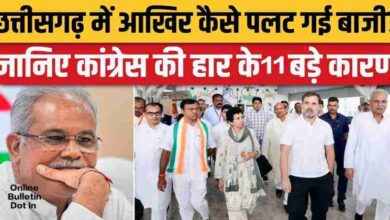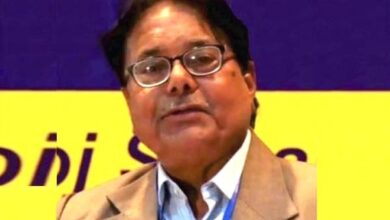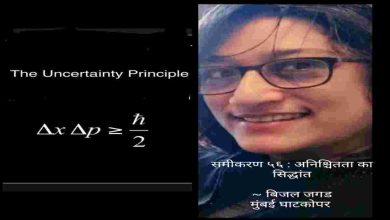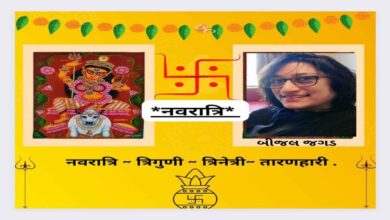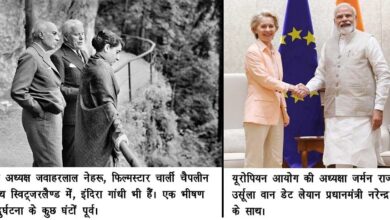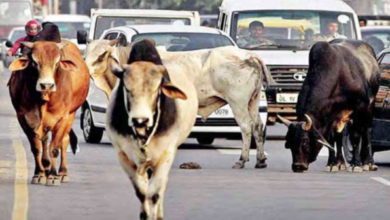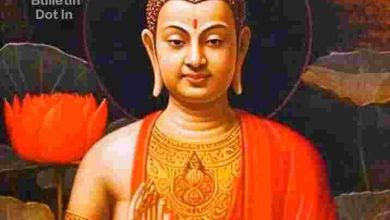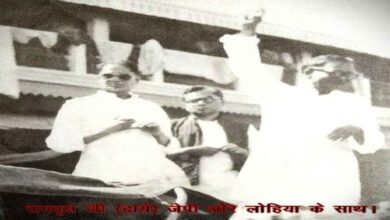महोत्सव के बाद अ’मृत बनाये रखने की चुनौती mahotsav ke baad a’mrt banaaye rakhane kee chunautee
©डॉ. सत्यवान सौरभ
परिचय- हिसार, हरियाणा.
रोजगार विहीन विकास किसी भी अर्थव्यवस्था के लिए सुरक्षित दांव नहीं है। बेरोजगारी न केवल हमारे मानव संसाधनों के इष्टतम उपयोग की अनुमति देती है बल्कि सामाजिक कलह और विभाजनकारी राजनीति के लिए प्रजनन स्थल भी बनाती है। शिक्षा, स्किलिंग, युवा उद्यमियों और नवप्रवर्तन कर्ताओं को उपयुक्त रोजगार और सहायता, शिक्षा और रोजगार के लिए देश भर में गतिशीलता को आसान बनाना समय की जरूरत है। सांप्रदायिक और भाषाई बाधाएं ऐसी गतिशीलता में बाधा डालती हैं और विकास पर प्रतिकूल प्रभाव डालती हैं। भारत को युवाओं के स्वास्थ्य, शिक्षा और कौशल को बढ़ाने पर ध्यान देना चाहिए।
दुनिया का सबसे बड़ा लोकतंत्र जल्द ही पृथ्वी पर सबसे अधिक आबादी वाला देश बनने वाला है। इसलिए, स्वतंत्रता के 75 वर्ष का उत्सव व्यक्तिगत और सामूहिक स्वतंत्रता के संरक्षण और प्रचार में वैश्विक मानकों को स्थापित करने के लिए एक विशेष जिम्मेदारी लाता है।
इस ऐतिहासिक अवसर पर हमें यह संकल्प लेना चाहिए कि हम अपनी स्वतंत्रता को कभी भी सत्तावादी अहंकार से नहीं लूटने देंगे या भारतीय लोगों की एकता को कमजोर करने के लिए नफरत फैलाने की अनुमति नहीं देंगे। आजादी के अ’मृत महोत्सव का मतलब नए विचारों, नए संकल्पों और आत्मनिर्भरता का अ’मृत है। ‘आजादी का अ’मृत महोत्सव’ प्रगतिशील भारत की आजादी के 75 साल और उसकी संस्कृति और उपलब्धियों के गौरवशाली इतिहास को बनाये रखने की मांग करता है।
भारतीय राष्ट्रीय कांग्रेस, मुस्लिम लीग और सिख समुदाय के विधायिका प्रतिनिधियों ने लॉर्ड माउंटबेटन के साथ एक समझौता किया, जिसे 3 जून योजना या माउंटबेटन योजना के रूप में जाना जाता है। यह योजना स्वतंत्रता की अंतिम योजना थी। 3 जून 1947 को वायसराय माउंटबेटन द्वारा घोषित योजना में ब्रिटिश भारत के विभाजन के सिद्धांत को ब्रिटिश सरकार ने स्वीकार कर लिया था।
उत्तराधिकारी सरकारों को डोमिनियन का दर्जा, दोनों देशों को स्वायत्तता और संप्रभुता, उत्तराधिकारी सरकार अपना संविधान बनाये, भौगोलिक निकटता और लोगों की इच्छा से रियासतों को दो प्रमुख कारकों के आधार पर पाकिस्तान या भारत में शामिल होने का अधिकार दिया गया था। माउंटबेटन योजना ने 1947 के भारत स्वतंत्रता अधिनियम का नेतृत्व किया।
यूनाइटेड किंगडम की संसद द्वारा पारित भारतीय स्वतंत्रता अधिनियम 1947 में ब्रिटिश भारत को दो नए स्वतंत्र प्रभुत्वों में विभाजित कर दिया। भारत का डोमिनियन (बाद में भारत गणराज्य बनने के लिए) पाकिस्तान का डोमिनियन (बाद में पाकिस्तान का इस्लामी गणराज्य बन गया) के इस अधिनियम को 18 जुलाई 1947 को शाही स्वीकृति प्राप्त हुई।
15 अगस्त 1947 को भारत और पाकिस्तान स्वतंत्र हुए। भारत 15 अगस्त को अपने स्वतंत्रता दिवस मनाता है जबकि पाकिस्तान ने अपने कैबिनेट निर्णयों के अनुसार 14 अगस्त को अपने स्वतंत्रता दिवस के रूप में मनाता है।
भारत ब्रिटिश शासित प्रदेशों और रियासतों के व्यापक बिखराव से एक राष्ट्र का निर्माण करने के लिए औपनिवेशिक शासन के गला घोंटने से उभरा। स्वतंत्रता संग्राम की यह एकता रातों-रात जादुई रूप से मूर्त रूप नहीं ले पाई। इस आंदोलन ने महात्मा गांधी से प्रेरित और भारतीय राष्ट्रीय कांग्रेस के नेतृत्व में विदेशी शासन को समाप्त करने के लिए पूरे देश में भारतीयों को एकजुट किया।
इस आंदोलन ने भारतीयों को भाषा, धर्म, जाति, लिंग और सामाजिक स्थिति की कई पहचानों में एकजुट किया। ये एकता भारत के लिए अनमोल है और इसे सांप्रदायिक रूप से विभाजनकारी, भाषाई रूप से अतिवादी, कठोर जातिवादी और लिंग संवेदनशील अभियानों के माध्यम से नष्ट नहीं किया जाना चाहिए जो भारतीय पहचान को खंडित करेंगे।
रोजगार विहीन विकास किसी भी अर्थव्यवस्था के लिए सुरक्षित दांव नहीं है। बेरोजगारी न केवल हमारे मानव संसाधनों के इष्टतम उपयोग की अनुमति देती है बल्कि सामाजिक कलह और विभाजनकारी राजनीति के लिए प्रजनन स्थल भी बनाती है। शिक्षा, स्किलिंग, युवा उद्यमियों और नवप्रवर्तन कर्ताओं को उपयुक्त रोजगार और सहायता, शिक्षा और रोजगार के लिए देश भर में गतिशीलता को आसान बनाना समय की जरूरत है।
सांप्रदायिक और भाषाई बाधाएं ऐसी गतिशीलता में बाधा डालती हैं और विकास पर प्रतिकूल प्रभाव डालती हैं। भारतीय उद्योग जगत के नेताओं को इस खतरे को पहचानना चाहिए और राष्ट्रीय एकता के लिए अपनी आवाज उठानी चाहिए, मूकदर्शक नहीं रहना चाहिए, जब विभाजनकारी राजनीति अर्थव्यवस्था के लिए खतरा पैदा कर रही हो।
भारत ने स्वतंत्रता के प्रारंभिक वर्षों से ही विज्ञान में उत्कृष्टता को प्रगति के मार्ग के रूप में अपनाया। राष्ट्रीय विज्ञान नीति अग्रगामी थी। वैज्ञानिक शिक्षा और अनुसंधान के महान संस्थान स्थापित किए गए। भारत के विभिन्न प्रौद्योगिकी संस्थानों ने विश्व ख्याति प्राप्त की है, उनके कई स्नातक प्रतिष्ठित वैश्विक उद्यमों का नेतृत्व कर रहे हैं।
अंतरिक्ष, समुद्र विज्ञान और परमाणु कार्यक्रमों ने हमें राष्ट्रों के एक चुनिंदा समूह में रखा है, जिनकी वैज्ञानिक कौशल और तकनीकी उत्कृष्टता को पूरी दुनिया सम्मान पूर्वक स्वीकार करती है। भारत को युवाओं के स्वास्थ्य, शिक्षा और कौशल को बढ़ाने पर ध्यान देना चाहिए।
राष्ट्रीय परिवार स्वास्थ्य सर्वेक्षण हमें याद दिलाता है कि बौनापन, कुपोषण और एनीमिया प्रजनन आयु वर्ग के हमारे बच्चों और महिलाओं का एक बड़ा प्रतिशत पीड़ित है। हमें यह सुनिश्चित करने की आवश्यकता है कि पोषण-विशिष्ट कार्यक्रम वितरित हों, भले ही हम अन्य क्षेत्रों, विशेष रूप से पानी और स्वच्छता में पोषण-संवेदनशील नीतियों को आगे बढ़ाएं। कोविद-19 ने हमारी स्वास्थ्य प्रणाली में कई कमजोरियों को उजागर किया।
रोग निगरानी से लेकर स्वास्थ्य देखभाल के प्रावधान तक, हमें स्वास्थ्य सेवाओं की क्षमता को मजबूत करने की आवश्यकता है। विभिन्न राज्यों में स्वास्थ्य प्रणालियों की क्षमता और प्रदर्शन में उल्लेखनीय अंतर हैं। यह आवश्यक है कि राज्य स्वास्थ्य में अधिक निवेश करें और यह भी कि केंद्र प्रायोजित कार्यक्रमों का उद्देश्य उन राज्यों को अधिक सहायता प्रदान करना है जिनके स्वास्थ्य संकेतक पिछड़ रहे हैं।
हमें अपनी स्थिति बनाए रखने की जरूरत है, भले ही दुनिया नए संघर्षों और गठबंधनों को देख रही हो। दुनिया के अधिकांश देशों में, लेकिन विशेष रूप से दक्षिण एशिया में हमारे लिए एक विश्वसनीय और सम्मानित मित्र के रूप में माना जाना आवश्यक है। हमें अपनी विदेश नीति को व्यक्तिगत इशारों पर निर्भरता के माध्यम से डगमगाने नहीं देना चाहिए, लेकिन सक्षम राजनयिकों द्वारा समर्थित बुद्धिमान नेतृत्व के माध्यम से स्पष्ट पहल का पालन करना चाहिए।
इसके साथ-साथ, संस्थाओं का भी कमजोर होना चिंताजनक है जो लोकतांत्रिक स्वतंत्रता की रक्षा करते हैं, सुशासन के मानदंडों को बनाए रखते हैं और चुनावी राजनीति को धन बल और सह-चुनाई गई राज्य एजेंसियों के हमले से बचाते हैं। यह भारत के नागरिकों के लिए चुनौती है कि वे हमारी स्वतंत्रता की कड़ी मेहनत से प्राप्त लाभों की सुरक्षा और संरक्षण करें।
सामाजिक और शैक्षिक रूप से वंचित बच्चों को शिक्षा प्राप्त करने में मदद करने के लिए ‘समावेश निधि’ के निर्माण की आवश्यकता है। सहकारी संघवाद की आवश्यकता है चूंकि शिक्षा एक समवर्ती विषय है (केंद्र और राज्य सरकार दोनों इस पर कानून बना सकती हैं), प्रस्तावित सुधारों को केवल केंद्र और राज्यों द्वारा सहयोगात्मक रूप से लागू किया जा सकता है। सार्वभौमिक स्वास्थ्य कवरेज के अंतर्गत सभी व्यक्तियों को पर्याप्त वित्तीय सुरक्षा के साथ आवश्यक स्वास्थ्य सेवाएं प्रदान करना, सार्वभौमिक स्वास्थ्य कवरेज का लक्ष्य होना चाहिए।

Dr Satywan Saurabh
Jobless growth is not a safe bet for any economy. Unemployment not only allows optimum utilization of our human resources but also creates a breeding ground for social discord and divisive politics. Ease of mobility across the country for education, skilling, suitable employment and support to young entrepreneurs and innovators, education and employment is the need of the hour. Communal and linguistic barriers hinder such mobility and adversely affect development. India should focus on enhancing the health, education and skills of the youth.
The world’s largest democracy is soon going to become the most populous country on earth. Therefore, the celebration of 75 years of independence brings with it a special responsibility to set global standards in the protection and promotion of individual and collective liberties.
On this historic occasion, let us take a pledge that we will never allow our freedom to be robbed of authoritarian arrogance or spread hatred to weaken the unity of the Indian people. The elixir of freedom means the elixir of new ideas, new resolutions and self-reliance. The ‘Azadi Ka Amrit Mahotsav’ demands to preserve the glorious history of 75 years of independence of progressive India and its culture and achievements.
The Indian National Congress, the Muslim League and the legislature representatives of the Sikh community reached an agreement with Lord Mountbatten, known as the 3 June Plan or Mountbatten Plan. This plan was the final plan of independence. The principle of partition of British India was accepted by the British Government in the plan announced by Viceroy Mountbatten on 3 June 1947.
Dominion status to the successor governments, autonomy and sovereignty to both countries, the successor government making their own constitution, geographical proximity and the will of the people, the princely states were given the right to join Pakistan or India on the basis of two major factors. The Mountbatten Plan led to the India Independence Act of 1947.
India and Pakistan became independent on 15 August 1947. India celebrates its Independence Day on 15 August while Pakistan celebrates 14 August as its Independence Day as per its cabinet decisions.
India emerged from the throttle of colonial rule to form a nation out of a wide scattering of British territories and princely states. This unity of freedom struggle could not magically take shape overnight. The movement, inspired by Mahatma Gandhi and led by the Indian National Congress, united Indians across the country to end foreign rule.
The movement united Indians across multiple identities of language, religion, caste, gender and social status. This unity is priceless for India and should not be destroyed through communally divisive, linguistically extremist, harsh casteist and gender sensitive campaigns that will denounce Indian identity.
Jobless growth is not a safe bet for any economy. Unemployment not only allows optimum utilization of our human resources but also creates a breeding ground for social discord and divisive politics. Ease of mobility across the country for education, skilling, suitable employment and support to young entrepreneurs and innovators, education and employment is the need of the hour.
Communal and linguistic barriers hinder such mobility and adversely affect development. Indian industry leaders should recognize this danger and raise their voice for national integration, not be a mute spectator when divisive politics is threatening the economy.
India pursued excellence in science as a path to progress from the early years of independence. The National Science Policy was forward-looking. Great institutions of scientific education and research were established. India’s various technology institutes have gained world renown, with many of their graduates leading prestigious global enterprises.
Space, oceanography and nuclear programs have placed us in a select group of nations whose scientific prowess and technological excellence are respected by the world. India should focus on enhancing the health, education and skills of the youth.
The National Family Health Survey reminds us that stunting, malnutrition and anemia afflict a large percentage of our children and women in the reproductive age group. We need to ensure that nutrition-specific programs are delivered, even as we pursue nutrition-sensitive policies in other sectors, particularly water and sanitation. Covid-19 has exposed many vulnerabilities in our healthcare system.
From disease surveillance to health care provision, we need to strengthen the capacity of health services. There are significant differences in the capacity and performance of health systems in different states. It is necessary that the states invest more in health and also that the centrally sponsored programs are aimed at providing more support to the states whose health indicators are lagging.
We need to maintain our position even as the world is witnessing new conflicts and alliances. It is essential for us to be regarded as a trusted and respected friend in most of the countries of the world, but especially in South Asia. We must not allow our foreign policy to waver through reliance on personal gestures, but must follow clear initiatives through wise leadership backed by competent diplomats.
At the same time, there is worrying weakening of institutions that protect democratic liberties, uphold standards of good governance and protect electoral politics from the onslaught of money power and co-opted state agencies. It is a challenge to the citizens of India to safeguard and preserve the hard earned gains of our freedom.
There is a need for creation of ‘Inclusion Fund’ to help socially and educationally disadvantaged children to get education. Need for cooperative federalism Since education is a concurrent subject (both central and state governments can legislate on it), proposed reforms can only be implemented cooperatively by the center and states.Universal health coverage should aim at providing essential health services to all individuals with adequate financial security.



